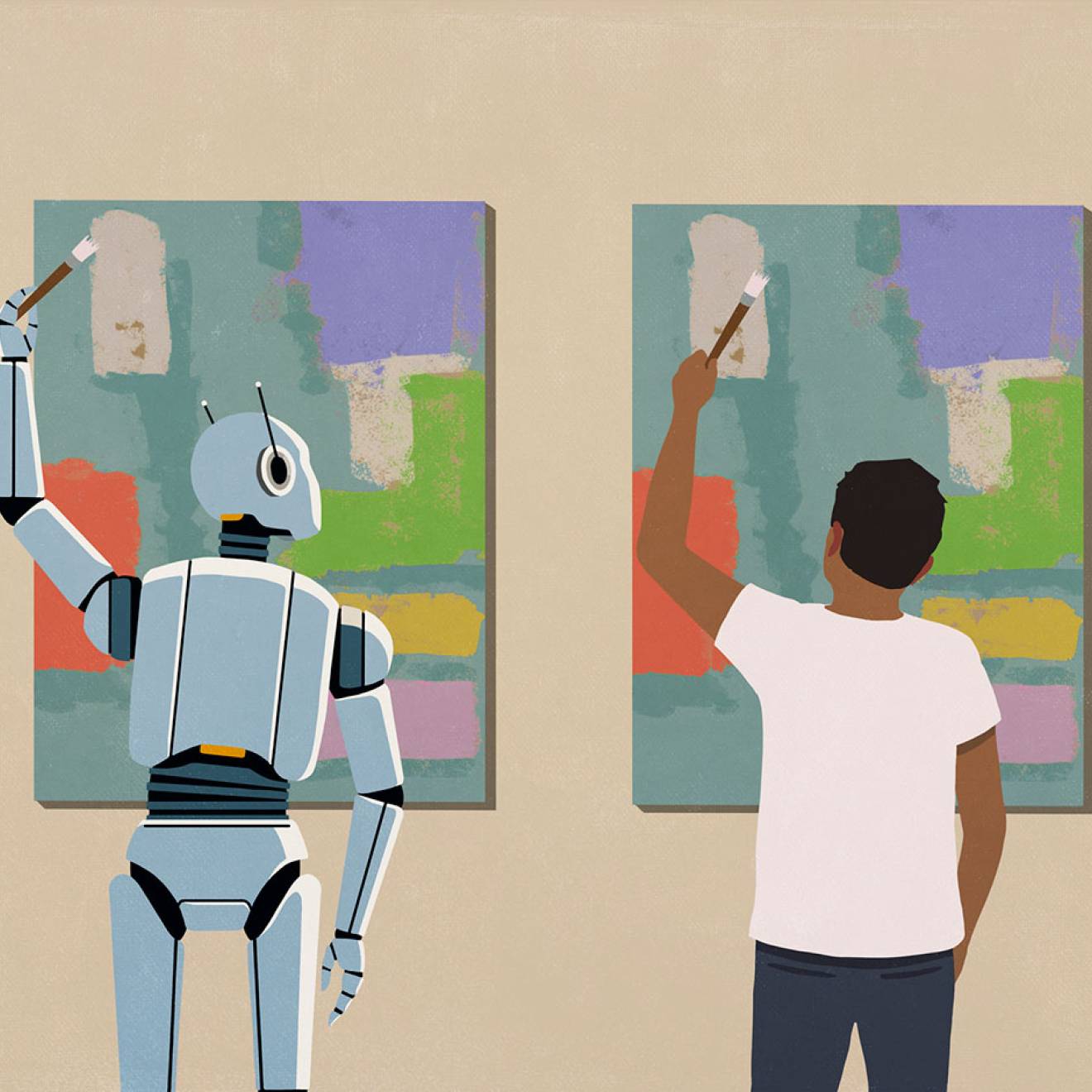Andy Murdock, UC Newsroom
The death penalty: does it deter crime? Climate change: are humans responsible? Guns: do their risks outweigh their benefits? You might think your understanding of political issues is based on solid, unbiased facts. You might be wrong.
“People think that they think like scientists,” said Professor Peter Ditto, who studies human judgment and decision making at UC Irvine. “But really they think like lawyers.”
“Scientists don't care what the answer is: they look at the data and draw a conclusion,” said Ditto. “Lawyers know the conclusion they want to reach, then they harness a bunch of facts to support that conclusion.”
And this, said Ditto, is how we construct our political facts, whether we realize we’re doing it or not.
America the polarized
Ditto’s research wasn’t always focused on politics – he started with a more general interest in denial and why people refuse to believe certain things even when presented with strong evidence. That led him to ask questions about health psychology.
“Why is it that when people get confronted with an illness, they sometimes say, ‘No, no, maybe that test is wrong’?” said Ditto. “What we want to believe changes how we think about the information that comes in.”
Then the hyperpolarized, hyperpartisan political environment of the U.S. caught his attention: It's an arena in which people’s emotions so clearly affect their judgements about what is true.
People expect political opinions to be biased, but facts are supposed to be facts: verifiable, unbiased.
“What's so striking is that the two sides have different sets of facts,” said Ditto. “Liberals and conservatives look at the same thing and see something very different. This is exactly the kind of motivated reasoning that I've always been interested in.”
Pot, meet kettle
Anyone who watches politics knows that biases are rampant on both sides of the political spectrum; pure objectivity and politics rarely mingle. But are either conservatives or liberals more biased than the other?
“What we find is both sides are equally biased in their own direction,” Ditto said.
People are savvy at spotting bias in other people’s arguments, but they consistently fail to recognize bias in themselves.
“Everybody is calling each other out for their own sins,” said Ditto. “In psychology we call it the ‘bias blind spot.’”
For example, both liberals and conservatives claim freedom as one of their core values, and both sides have similar blind spots when it comes to freedom.
“We're happy to give freedom to people for the things that we think are morally right, and not for things we think are morally wrong,” said Ditto.
Conservatives push for economic freedom, but not freedom around things that they think are morally wrong, like gay marriage or abortions.
“Liberals show exactly the opposite pattern,” said Ditto. “They're comfortable with freedom when it comes to sexual behavior, and less so in economic behavior.”
How morals define your politics
Much of Ditto and his colleagues’ work centers on Moral Foundations Theory, a framework used by psychologists to conceptualize the core values that factor into human morality worldwide: harm, fairness, loyalty, authority/tradition, and purity.
“You see these in all sorts of different cultures. These are the five major things that morality tends to deal with, but different groups differ in how much they weight each of those different kinds of factors,” explained Ditto.
To dig into the details of how morals affect human behavior and political ideologies, Ditto and his collaborators at UC Irvine, New York University, the University of Virginia and the University of Southern California created the website www.yourmorals.org, where anyone online can fill out a series of psychological surveys related to morality. To date, over 600,000 have taken surveys on the site.
From the surveys, it’s relatively easy to pin where people lie on the political spectrum.
“Liberals essentially care about two things, when it comes to morality: harm and fairness. If it doesn't harm somebody or if it isn't unfair then it's morally okay to do,” said Ditto.
Conservatives, on the other hand, aren’t the polar opposite of liberals; they find all five factors to be important.
“Conservatives care about harm and fairness, just like liberals do, but they care more than liberals about group loyalty, authority and tradition, and about purity,” said Ditto.
When Ditto and his team looked through the results from the online surveys, the participants were predominantly liberal, but a third unexpected group participated in high numbers: libertarians.
“If you look at libertarians, they’re low on everything. Their worldview isn’t a deeply moral worldview, it’s more of a pragmatic, utilitarian worldview,” said Ditto.
Morals and practicality
Why don’t we seem to learn from past political mistakes? Because our morals determine the facts, not the other way around.
“What we find is that people's moral visions almost always cohere or are consistent with their practical beliefs. So the things they think are morally wrong, they think are practically ineffective,” said Ditto.
As an example, Ditto brings up waterboarding and controversial enhanced interrogation techniques.
“Almost everybody who thinks that torture is morally wrong also thinks it's practically ineffective. People who have less of a moral problem with it, very often think that it is effective,” said Ditto.
The same pattern is found when people are asked about the death penalty.
“People who think that the death penalty is wrong, also think it's practically ineffective, that it doesn't deter crime,” said Ditto.
Are conservatives anti-science?
Conservatives, particularly in the U.S., are often painted as being generally anti-science for their stances on issues like climate change. Science, ironically, says otherwise.
“It's wrong to say that one group devalues science more than the other,” says Ditto. “Both groups will accept scientific information if it supports what they want to believe, and they'll denigrate it if it doesn't.”
Ditto points to a classic study from researchers at Stanford published in 1979, in which they presented subjects with scientific information that either suggested capital punishment deterred crime or that it did not. The study was the same, only the conclusions were changed.
When asked if the study was a good study, the answers depended on the participants’ beliefs when they went in.
“You saw this wonderful pattern where everybody thought that the study was much better when it supported their side, and they thought it was a less good study when it supported the other side,” said Ditto.
Is there any common ground?
If liberals and conservatives can’t even agree on the basic facts, is there any hope for finding common ground and ending the current political gridlock?
“The two sides are kind of mirror images of each other. Both sides seem to think that the other one is evil. But really if you look, everybody behaves in very similar ways,” said Ditto.
Conservatives and liberals share certain core values: helping disadvantaged people and establishing a basic sense of fairness.
Events can galvanize both sides around a common cause. The Charleston shootings in 2015 led to less support for flying the Confederate flag, regardless of political stripe. The Sept. 11 terrorist attacks led to widespread support for military action and security measures that would have been politically impossible before.
Ditto sees room for improvement in how political debates are waged.
“I'm particularly interested in how to make politics more civil. How to get the two sides to understand each other better, and lower the temperature on the political conflict.”
“The real issue in politics is a massive lack of self-awareness,” said Ditto. “If you can get people to realize a little bit of humility, a little bit of recognizing that they're doing the same things that the other side is doing, maybe that will help.”

